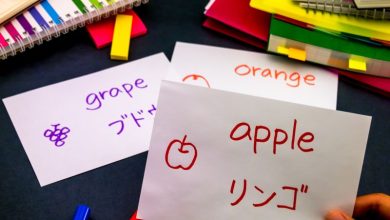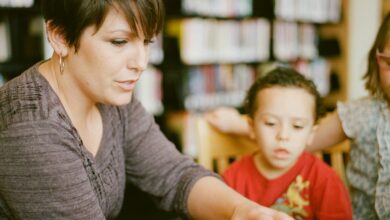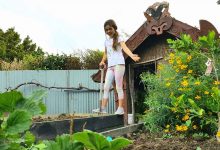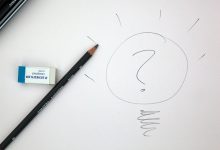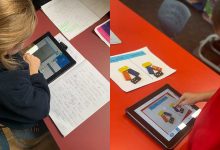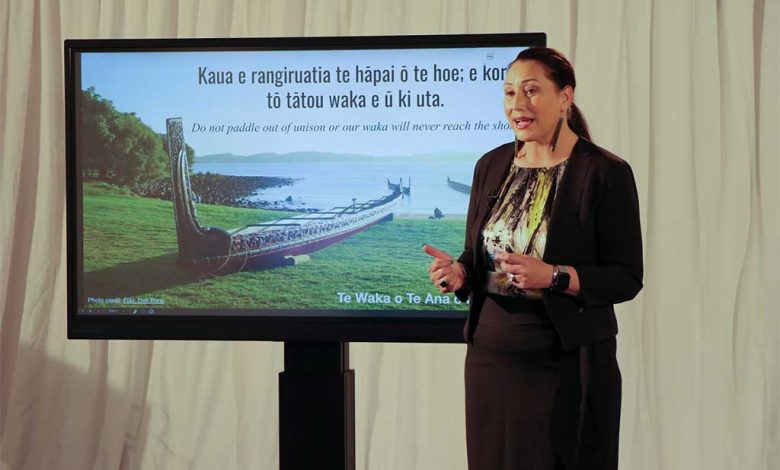
By Alicia Ngaropo-Tuia – inspired by uLearn20 keynote Janelle Riki-Waaka
If you hadn’t heard already, uLearn20 was epic! After 15 years of phenomenal, boundary pushing, innovative and disruptive face-to-face learning, uLearn went online for the first time. Transforming this event from a physical to a virtual space was no mean feat, but for our people at CORE transformation is not just our bread and butter, it’s our jam!
Choosing that right person to open uLearn20 was important. This task fell to one of our own powerful speakers, Janelle Riki-Waaka.
She laid down the call to action of uLearn20: Pohewatia te āpōpō – Reimagine tomorrow.
From the outset her message was very clear, we were on the move to reimagine what success is for tamariki Māori and their whānau. Our goal was to stamp out that F(ailure) word too commonly associated with our tamariki Māori replace it with finding passion and potential.
“Get onto a waka whānau (any one will do-there’s lots of them leaving)……. and paddle…..preferably in unison!”
It wasn’t too long before everyone in the (virtual) room was wanting to jump onto Janelle’s waka!
Janelle referenced the beautiful kōrero she shared from her Tainui kuia, Eva Rickard, an influential leader for Maōri land rights and a visionary for rangatiratanga.
“Me arahi, me whai, me whakawātea rānei. Lead, follow or get out of the way!”
I love this quote. Direct, provocative and pertinent to the context of education. For me it also invokes a sense of urgency for which we need to act in kura in order to flip the script for Māori. To frame up my thinking for reimagining tomorrow, based on some personal and professional experiences, I’m going to draw on these inspirational kupu to steer my waka, and just maybe you’ll want to get in with me!
Me arahi – Lead
Brought to my attention recently was a brief look into some of the amendments made from the Education Act 1989 where a schools’ consultation requirements around curriculum and performance were to merely ‘…consider the views and concerns of Māori…’ compared to the Education and Training Act 2020 where schools are required to ‘honour the Treaty of Waitangi and support Māori-Crown relationships by means of ensuring that plans, policies, and local curriculum reflect local tikanga Māori, mātauranga Māori and te ao Māori.’
One would hope that these expectations are already genuinely enacted by all kura in Aotearoa, but statistics on Māori achievement tell us otherwise. Our national PLD priorities around localised curriculum is an excellent way to lead out on change in areas such as definitions of success and as we heard from Janelle working alongside ākonga and their whānau in redefining what personalised success can look, feel and sound like.
A kura I am working with is located in a rural coastal area famous for its kutai (mussels), toheroa and fishing competitions. Locals have very unique fishing techniques and tikanga. Netting fish using horses is something you might see if you ever go there. There is a ton of other local knowledge but you’d have to marry into that area to learn any of that! So, it goes without saying that among other areas of learning and success at school it is important for whānau that their tamariki learn how (why and when) to fish and how to ride horses.
Through our curriculum design we will look at how to leverage that kind of knowledge for contexts of learning that are authentic, personalised and that give value to the different kinds of success identified by this whānau. It’s exciting mahi and we all need to get to work leading this out far and wide.
Me whai – Follow
During lockdown I received an email from a former student who I taught as a third grader in an international school in China close to ten years ago. He wondered if I would remember him which I chuckled about because he was kind of unforgettable, and I mean that in a good way. Anyway, his email was so sweet, thanking me for teaching him the ‘joy of reading’ and among other things he wanted me to recommend some books for him to read – Bless! I do remember him as someone who read with reluctance and so was glad to hear that he had persevered and found a love for reading.
My three sons, on the other hand, hate reading. And they blame me for that because during our holidays I would make them pack books in their bags which they had to read at certain times. To which I replied, blame your Dad for booking us in to stay at cool places where there were better things to do than read a book! So you can’t win them all.
But what does this have to do with the idea of following? Well, I agree with Janelle and believe that as kaiako it is our job to help ākonga know their potential and stick with them to find and follow their passions. And it is the responsibility of kura to do better in allowing the freedom to explore what that might be. Reading was not my former student’s passion but I knew he enjoyed listening to reading and I could see his love for stories.
As for my sons, some of their kaiako and kura didn’t quite see their potentials. Their father and I on the other hand, knew their strengths and passions. They were in the places we followed them to, on basketball courts and rugby fields, at theatre productions and kapa haka competitions and so on. I will continue to harp on at them about books and that’s just because reading is absolutely one of my passions.
Me whakawātea – Get out of the way
Just a couple of days ago, we had the privilege of facilitating a whānau hui at a kura in Te Tai Tokerau focusing (again) on designing a localised curriculum. All that were present were connected through whakapapa, a mixture of kuia, young mothers and fathers, aunties, uncles and cousins of the community.
We spent the day deep in discussion about their aspirations for their tamariki and mokopuna. The outcomes included agreements about what was non-negotiable for them. Whānau were resolute in the importance of their tamariki knowing their identity and culture, knowing also the stories of their rebellious tupuna who fought for their land by throwing herself across the main road in the area.
Throughout the day the principal would slip in and out at the back of the classroom wanting to listen yet mindful of the importance of letting whānau voices be heard. Her role that day ended up being getting lunch ready before the powercut that was scheduled for 11am that morning!
To me this is a great example of getting out of the way. Article 2 of Te Tiriti o Waitangi speaks to this, Tino Rangatiratanga, the autonomy for Māori to control their own affairs. When debriefing afterwards and commenting on how well the day went, the principal mentioned she was glad for a good turnout. I know some kura do struggle with getting Māori whānau into schools, but giving space and place and getting out of the way in order for whānau to come in is well worth some serious thought and strategy.
I hope you’re already paddling fast in your waka because time is of the essence. This year has given us so much, and sadly not all positive. But I’m glad for the opportunities that have arisen and transformations that have taken place including a challenge to reimagine success, to reimagine learning and ultimately reimagine tomorrow.
Na reira, ki a koe Jaye me tō kōrero whakaohooho i a mātou , e mihi ana, e tungou ana. Ngāti Mahunga me Ngāti Tahinga kei runga!
Hundreds of educators are still buzzing about uLearn20, and how they could reimagine success and learning. With the entire conference accessible until 18 December 2020, it’s not too late to join them!



